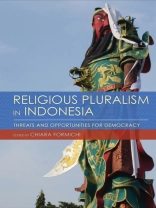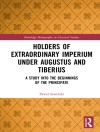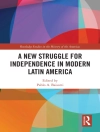In 1945, Sukarno declared that the new Indonesian republic would be grounded on monotheism, while also insisting that the new nation would protect diverse religious practice. The essays in Religious Pluralism in Indonesia explore how the state, civil society groups, and individual Indonesians have experienced the attempted integration of minority and majority religious practices and faiths across the archipelagic state over the more than half century since Pancasila. The chapters in Religious Pluralism in Indonesia offer analyses of contemporary phenomena and events; the changing legal and social status of certain minority groups; inter-faith relations; and the role of Islam in Indonesia’s foreign policy. Amidst infringements of human rights, officially recognized minorities-Protestants, Catholics, Hindus, Buddhists and Confucians-have had occasional success advocating for their rights through the Pancasila framework. Others, from Ahmadi and Shi’i groups to atheists and followers of new religious groups, have been left without safeguards, demonstrating the weakness of Indonesia’s institutionalized "pluralism."Contributors: Lorraine Aragon, Christopher Duncan, Kikue Hamayotsu, Robert Hefner, James Hoesterey, Sidney Jones, Mona Lohanda, Michele Picard, Evi Sutrisno, Silvia Vignato
Chiara Formichi
Religious Pluralism in Indonesia [PDF ebook]
Threats and Opportunities for Democracy
Religious Pluralism in Indonesia [PDF ebook]
Threats and Opportunities for Democracy
Compre este e-book e ganhe mais 1 GRÁTIS!
Língua Inglês ● Formato PDF ● Páginas 276 ● ISBN 9781501760464 ● Editor Chiara Formichi ● Editora Cornell University Press ● Publicado 2021 ● Carregável 3 vezes ● Moeda EUR ● ID 8218462 ● Proteção contra cópia Adobe DRM
Requer um leitor de ebook capaz de DRM












